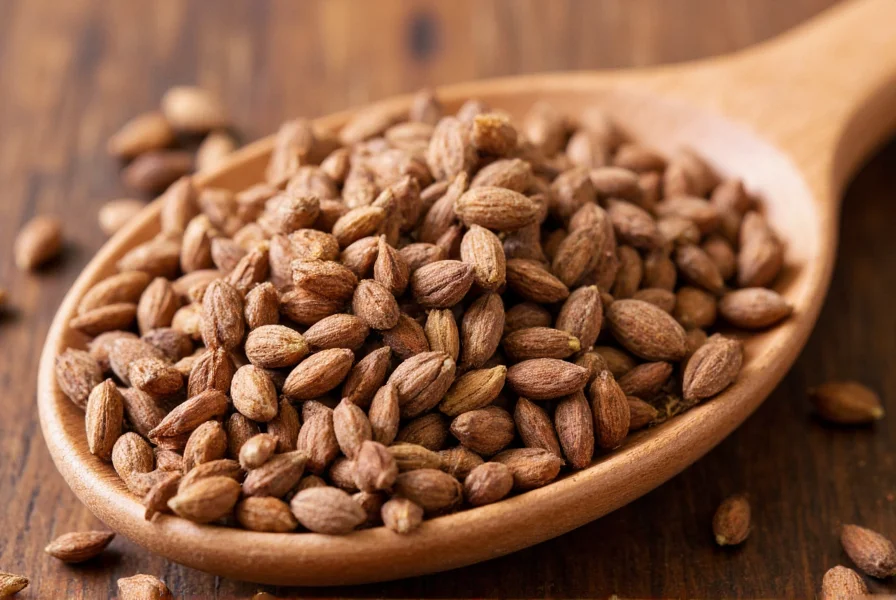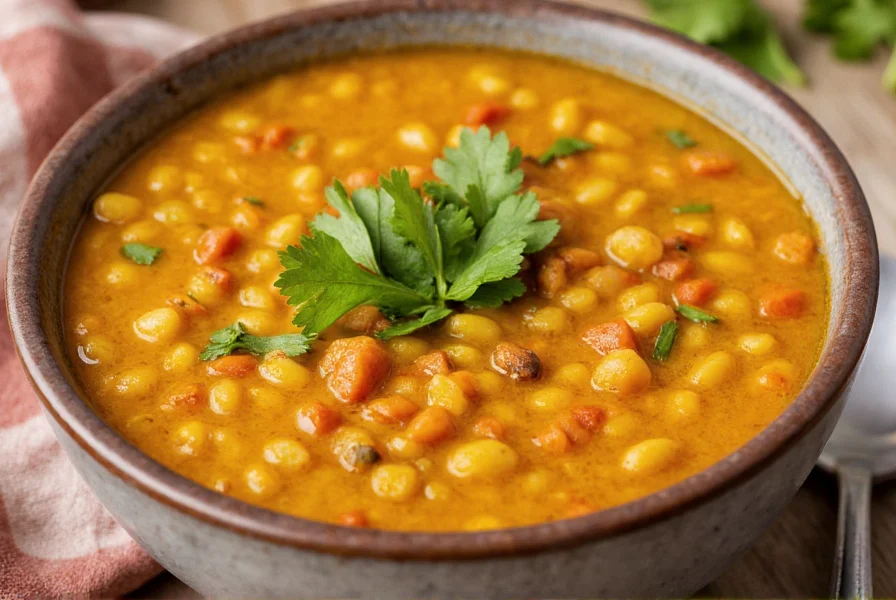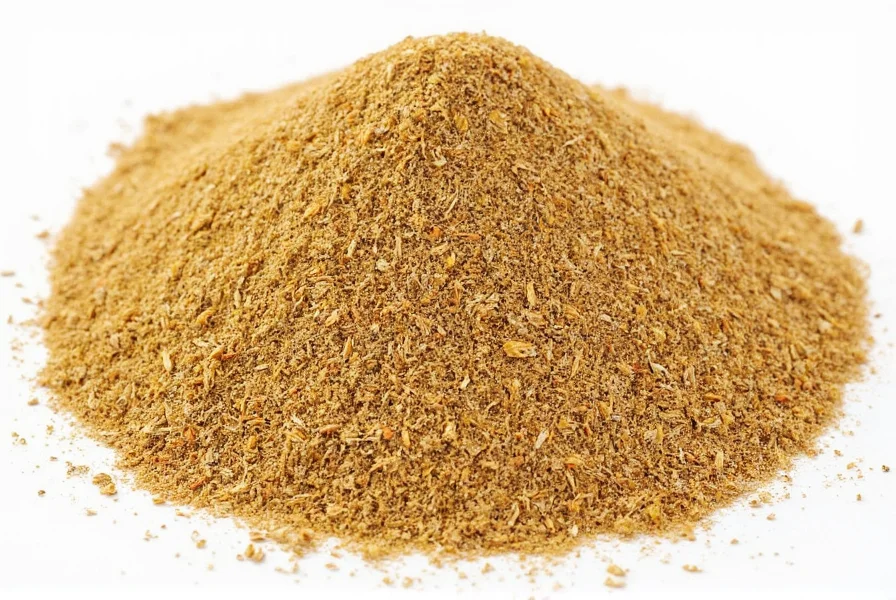Cumin (Cuminum cyminum), one of the world's oldest spices, has been used for both culinary and medicinal purposes across various cultures for thousands of years. Modern scientific research is now validating many of the traditional health claims associated with this versatile seed. Understanding the scientific evidence of cumin health benefits requires examining peer-reviewed studies while recognizing the distinction between culinary use and therapeutic applications.
The Nutritional Profile of Cumin
Beyond its distinctive flavor, cumin packs a nutritional punch. Two tablespoons (10g) of ground cumin provide:
| Nutrient | Amount | % Daily Value |
|---|---|---|
| Iron | 1.4 mg | 8% |
| Manganese | 0.5 mg | 22% |
| Magnesium | 27 mg | 6% |
| Calcium | 35 mg | 3% |
These minerals contribute to cumin's physiological effects, but the spice's most significant health properties come from its bioactive compounds, particularly cuminaldehyde, which gives cumin its distinctive aroma and many of its therapeutic effects.
Scientifically Supported Health Properties of Cumin
Powerful Antioxidant Activity
Cumin ranks among the spices with highest antioxidant capacity. Research published in the Journal of Agricultural and Food Chemistry demonstrates that cumin's cumin antioxidant properties research reveals significant free radical scavenging ability, primarily from compounds like luteolin, apigenin, and cuminaldehyde. These antioxidants help protect cells from oxidative damage, which is implicated in chronic diseases including heart disease and cancer.

Digestive Health Benefits
Traditional medicine systems have long used cumin for digestive issues, and modern science supports these applications. A clinical trial in the Indian Journal of Pharmacology found that cumin extract significantly improved symptoms of indigestion including bloating and abdominal pain. The spice stimulates digestive enzyme secretion and may help reduce intestinal spasms. For those interested in how cumin improves digestion naturally, incorporating 1-2 grams daily (about 1/2 to 1 teaspoon) may provide noticeable benefits.
Blood Sugar Regulation
Several studies suggest cumin may help regulate blood glucose levels. Research in Nutrition Research showed that participants taking 75mg of cumin extract daily for eight weeks experienced significant improvements in fasting blood sugar and insulin resistance compared to placebo. While promising, these effects were observed with concentrated extracts, not typical culinary use. Those researching cumin effects on blood sugar levels should note that cumin complements—but doesn't replace—standard diabetes management.
Anti-Inflammatory Effects
Chronic inflammation underlies many modern diseases. Cumin contains compounds that inhibit inflammatory pathways. A study in Phytomedicine demonstrated that cumin extract reduced markers of inflammation in animal models. The cumin anti-inflammatory properties appear most potent when using standardized extracts, though regular culinary use may contribute to an overall anti-inflammatory diet pattern.
Cholesterol Management
Research indicates cumin may positively affect lipid profiles. A randomized controlled trial published in Complementary Therapies in Medicine found that participants consuming 75mg of cumin extract daily for eight weeks showed significant reductions in LDL cholesterol and triglycerides. These findings suggest potential cardiovascular benefits, though more research is needed to determine optimal dosing for cumin cholesterol management effects.
Traditional Uses vs. Modern Research
Across Middle Eastern, Indian, and Mediterranean cultures, cumin has been traditionally used for:
- Digestive complaints (bloating, gas, indigestion)
- Respiratory conditions
- Wound healing
- Lactation support
While modern research validates some of these traditional uses of cumin in medicine, particularly for digestion, other applications require more rigorous investigation. The concentration of active compounds in traditional preparations often differs significantly from modern standardized extracts used in studies.
Practical Incorporation into Your Diet
To benefit from cumin's properties without supplements:
- Add 1/2-1 teaspoon of ground cumin to soups, stews, and curries
- Dry roast whole cumin seeds before grinding to enhance flavor and bioactive compounds
- Combine with black pepper (which contains piperine) to potentially increase absorption of cumin's compounds
- Use in homemade spice blends like garam masala or chili powder

Safety and Considerations
Cumin is generally recognized as safe when consumed in typical food amounts. However, those considering higher therapeutic doses should note:
- May interact with blood-thinning medications due to coumarin content
- Large amounts might lower blood sugar excessively when combined with diabetes medications
- Pregnant women should avoid medicinal doses as cumin may stimulate uterine contractions
- Some individuals may experience heartburn or allergic reactions
The cumin spice nutritional value makes it a valuable addition to most diets, but it should complement—not replace—conventional medical treatments for health conditions.
Conclusion: Cumin as Part of a Healthy Lifestyle
Cumin offers several scientifically supported health properties that validate its historical use in traditional medicine systems. While the most significant effects observed in research typically involve concentrated extracts, regular culinary use contributes to an overall dietary pattern rich in plant compounds that support health. Understanding the realistic health properties of cumin helps consumers make informed decisions without falling for exaggerated claims. As with all functional foods, cumin works best as part of a diverse, balanced diet rather than as a standalone remedy.
Frequently Asked Questions
What is the most significant health benefit of cumin?
Cumin's most well-documented health benefit is its antioxidant activity. The spice contains multiple compounds including cuminaldehyde, luteolin, and apigenin that combat oxidative stress. Research shows cumin ranks among spices with the highest antioxidant capacity, which may help protect against chronic diseases associated with free radical damage.
How much cumin should I consume daily for health benefits?
For culinary use, 1/2 to 1 teaspoon (1-2 grams) of ground cumin daily provides flavor and some health benefits. Most clinical studies showing significant health effects used concentrated extracts equivalent to 75-150mg daily, which is much higher than typical dietary intake. Regular culinary use contributes to overall health but shouldn't be expected to produce therapeutic effects seen in studies using extracts.
Can cumin help with weight loss?
Some preliminary research suggests cumin may support weight management. A study in the Annals of Nutrition and Metabolism found that women taking 3g of cumin powder daily for 8 weeks experienced greater reductions in body fat compared to placebo. However, these effects were modest and occurred alongside dietary changes. Cumin alone is not a weight loss solution but may complement a healthy diet and exercise regimen.
Is cumin safe for people with diabetes?
Cumin appears generally safe for people with diabetes and may offer benefits for blood sugar control. Research shows cumin extract can improve insulin sensitivity and reduce fasting blood glucose. However, because it may enhance the effects of diabetes medications, people taking these medications should monitor their blood sugar closely when consuming larger amounts of cumin and consult with their healthcare provider.
What's the difference between cumin and black cumin?
Cumin (Cuminum cyminum) and black cumin (Nigella sativa, also called black seed) are completely different plants with distinct properties. Regular cumin is a spice from the parsley family, while black cumin produces small black seeds used in Middle Eastern and Indian cooking. Black cumin contains thymoquinone and has different research supporting its health benefits. Don't substitute one for the other when following recipes or health recommendations.











 浙公网安备
33010002000092号
浙公网安备
33010002000092号 浙B2-20120091-4
浙B2-20120091-4